After a school makes a coaching change in the spring, there are a few checkpoints to see how things are progressing. The first comes a few weeks after the hire, when one can assess how the new coach has either rebuilt the roster or kept the existing pieces together following the change. Next is after the summer, when we have a clearer picture of the recruiting targets for the new coach. Is he changing tactics and goals from the previous coach, aiming higher on rankings lists or recruiting more to his new system? After that, we can take a look right before the season, gauging what expectations the program will have in his first campaign.
Now, six weeks into the season, we can take another look at which coaches are thriving and struggling through the first month-and-a-half of the campaign.
Exceeding early expectations
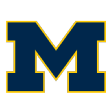
Juwan Howard, Michigan Wolverines: Howard is one of the early favorites for National Coach of the Year after the Wolverines won the loaded Battle 4 Atlantis tournament with wins over Iowa State, North Carolina and Gonzaga. Losses to Louisville and Illinois put a damper on Michigan's rise from unranked into the top five of the polls, but the Wolverines are clearly going to be better than expected in the first season under Howard.
Opposing coaches who have scouted and watched the Wolverines in the first month of the season have come away impressed by Howard's coaching, too. Michigan is still defending at a high level and has been one of the best 3-point shooting teams in the country. Howard is also making an impact on the recruiting trail, landing top-10 prospect Isaiah Todd, even though he didn't sign his letter of intent during the early period. On and off the court, the Ann Arbor faithful have to be happy with Howard thus far.

Mike Young, Virginia Tech Hokies: For this classification, it doesn't matter that the Hokies lost three in a row before Wednesday's win over Chattanooga. This was a team picked to finish last in the ACC in Young's first season in Blacksburg. We should have known very quickly that wasn't going to be the case, as Tech went into Clemson and knocked off the Tigers in the season opener.
The Hokies won their first six games of the season, capped by a statement victory over Michigan State at the Maui Invitational. Redshirt freshman Landers Nolley has been a revelation, and Young has shown why he turned Wofford into one of the most consistently successful mid-majors in the country over the past few seasons.

Aaron McKie, Temple Owls: Fresh off a 47-point thrashing of Big 5 rival Saint Joseph's, Temple is 7-2 in McKie's first season. The Owls own a road win at USC and beat Davidson and Texas A&M on neutral courts. They hung with Maryland before falling late (and lost at home to Missouri by 10). There was talent left over from a roster that went to the NCAA tournament in Fran Dunphy's final season, and McKie has ridden his junior- and senior-laden roster to a solid nonconference performance. Temple faces Miami in Brooklyn next week, which could show whether the Owls are good enough to compete for a tournament bid.
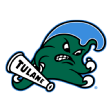
Ron Hunter, Tulane Green Wave: The Green Wave won four games all of last season in Mike Dunleavy's final season at the helm. Hunter surpassed that number by the end of November. Sure, Tulane lost its two toughest games so far this season, falling by 14 to Mississippi State and 24 to Saint Louis, but the Green Wave beat Utah in South Carolina. And remember: This was a team expected to finish at the bottom of the AAC and be a total nonfactor in year one. They still could finish there, but they aren't going to be pushovers in league play. Hunter transformed the roster via the transfer market, and that's a big reason Tulane sits at 7-2.
Jury is out
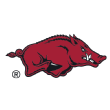
Eric Musselman, Arkansas Razorbacks: The Razorbacks have a gaudy 8-1 record after suffering their first loss of the season at Western Kentucky last weekend, but their best win was at Georgia Tech, and they haven't beaten anyone else of note. A four-game stretch that spans the New Year will give us a little more insight into whether Musselman's team can compete for an NCAA berth this season: at Indiana, vs. Texas A&M, at LSU, at Ole Miss. Musselman has had to change the playing style from Mike Anderson's tenure, with smaller lineups, more reliance on the 3-point shot and a slightly slower tempo. But early returns are positive.
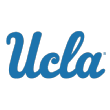
Mick Cronin, UCLA Bruins: It's hard to say that the jury is still out on a UCLA team that lost at home to Hofstra by 10, but there were always going to be growing pains with Cronin looking to change the culture and system in Westwood. We'll learn a little more about the Bruins over the next 10 days, as they play at Notre Dame and face North Carolina in Las Vegas. If they aren't competitive in either game, then it could be a rough first season for the Bruins. Off the court is where Cronin has had his most success so far. UCLA landed five-star point guard Daishen Nix and is squarely in the mix for five-star guard Josh Christopher.

Jerry Stackhouse, Vanderbilt Commodores: Coming off an 0-18 SEC campaign, the expectations for year one of the Stackhouse era were fairly nonexistent. But the Commodores have come out of the gates and been competitive, hanging tough with a good Richmond team on the road before falling in overtime and beating Buffalo by 14 -- a Buffalo team that handed DePaul its first loss of the season five days later. Aaron Nesmith has been one of the best players in the country, and Scotty Pippen Jr. and Dylan Disu have made impacts as freshman starters.

Mike Anderson, St. John's Red Storm: Anderson had to remake most of the St. John's roster, but he brought back LJ Figueroa and Mustapha Heron, two of the best players in the Big East, and landed Cleveland State transfer Rasheem Dunn, who received a waiver to play immediately. There's some offensive talent on the roster. There have been some ups and downs with Anderson looking to completely change the system, but the Red Storm beat West Virginia at Madison Square Garden and have only two losses -- to Vermont and Arizona State. The Red Storm still might finish last in the Big East, but they're going to be competitive most nights.

Steve Alford, Nevada Wolf Pack: Following in Eric Musselman's footsteps, even if you are Steve Alford and have a 10-year contract, was going to be a challenge, especially with nearly all of last season's rotation departing via graduation or the transfer portal. Things got off to an inauspicious start, with losses in three of the team's first five games. But the Wolf Pack have since turned things around somewhat, winning five in a row before being blown out at BYU.
San Diego State and Utah State are at the top of the Mountain West, with New Mexico next in line, but there's no reason that Nevada should finish outside the top four of the league. Four Musselman holdovers -- Jalen Harris, Jazz Johnson, Lindsey Drew and Nisre Zouzoua -- have provided a solid base for Alford.
Struggling

Fred Hoiberg, Nebraska Cornhuskers: With the massive rebuild Hoiberg undertook last spring in Lincoln, the expectations weren't high in year one for the former Iowa State and Chicago Bulls head coach. It's a roster littered with newcomers, both transfers and freshmen, and that has shown during the first few weeks.
The Cornhuskers are 4-5 this season, with home losses to UC Riverside and Southern Utah. They've looked better since those two defeats but were blown out by George Mason, Georgia Tech and Creighton. Freshman Samari Curtis already transferred, one ESPN 100 commit (D'Andre Davis) decommitted and went to Louisville, and another ESPN 100 commit (Donovan Williams) didn't sign his letter of intent. Expect the Cornhuskers to be busy again on the transfer front.
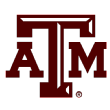
Buzz Williams, Texas A&M Aggies: A&M wasn't expected to go dancing in Williams' first season in College Station, but even so, it has been a rough six weeks for the program. The Aggies are only 3-5, having lost their past four games, including a loss in Orlando to Fairfield. For context, the Stags have only one other win this season -- at Holy Cross. Returning starting guard TJ Starks was also suspended indefinitely in mid-November before leaving the program a couple weeks later. Williams did land ESPN 100 guard Hassan Diarra to help next season, but the on-court product could be tough to watch for the next three months.
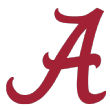
Nate Oats, Alabama Crimson Tide: Heading into the season, there was enough talent on the Crimson Tide's roster for them to make the NCAA tournament. Things haven't gone according to plan, however. Villanova transfer Jahvon Quinerly had his waiver request to play immediately denied by the NCAA, and there has been very little consistency from the guys who are able to play. Alabama is 4-4, and though none of the four losses was a devastating defeat (losing at home to Penn isn't great), it's hard to say that Oats' team looks like a top-half team in the SEC -- and that's likely the threshold the Crimson Tide have to hit to get to the dance.

John Brannen, Cincinnati Bearcats: The Bearcats made the NCAA tournament in Mick Cronin's final nine seasons at Cincinnati, but they're going to need to do a lot of work in American play to get a bid. They lost to both Ohio State and Xavier, which isn't reason for concern, but a loss to Bowling Green in the Virgin Islands -- and needing overtime to dispatch Valparaiso and UNLV -- raises some eyebrows.
The season-long ... something ... with AAC Player of the Year Jarron Cumberland hasn't helped, either. He has battled a couple injuries and missed a game due to a "coach's decision." This was arguably the new power-conference coach most likely to make the NCAA tournament in year one, but it isn't a lock so far.

TJ Otzelberger, UNLV Rebels: Don't put too much stock in UNLV's 4-7 record. The Runnin' Rebels are not off to a great start, but three of those seven losses came in overtime, and five came by single-digits. They also are 1-0 in the Mountain West after winning at Fresno State. They aren't as bad as their record.
There is talent on the roster, as Amauri Hardy, Elijah Mitrou-Long and Donnie Tillman all either transferred from or originally committed to high-major schools. Had high-scoring South Dakota State transfer David Jenkins Jr. been able to play right away, things might have been different in year one for Otzelberger. But it wasn't expected to happen overnight, and so far, the expectations have been correct.
It's going to take a while
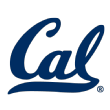
Mark Fox, California Golden Bears: Things started fairly well for Fox in Berkeley, as the Golden Bears won their first four games, including victories over UNLV and a talented Pepperdine group. But they've lost four of their past five, with double-digit losses at San Francisco and Santa Clara among the defeats. There simply isn't a ton of talent on Fox's roster right now, which isn't surprising, considering that the team went 5-31 in Pac-12 play the past two seasons. Fox knew it wasn't going to be an overnight rebuild at Cal, and he'll have time.

Kyle Smith, Washington State Cougars: This is a program that hasn't been to the NCAA tournament since Tony Bennett was in Pullman in 2008 and hasn't finished above .500 in the Pac-12 since then, either. This was always going to be a difficult task for Kyle Smith. The Cougars beat a New Mexico State team that went to the NCAA tournament last season, and they knocked off Old Dominion in the Cayman Islands. But they have losses to Santa Clara, Colorado State, Nebraska and Nebraska-Omaha. There's a long way to go.
Mid-major surprises

Dane Fischer, William & Mary Tribe: There were eyebrows raised across the industry last spring when the Tribe fired longtime coach Tony Shaver, despite finishing fourth in the CAA and going above .500 in the league the past six seasons. Fischer, a former George Mason assistant, was tabbed to take over, and he has done well thus far. The Tribe won at Wofford, beat Old Dominion and hung tough at Oklahoma before falling by five. They'll compete near the top of a wide-open league this season.
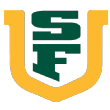
Todd Golden, San Francisco Dons: This is not so much a surprise as a recognition of Golden's keeping the momentum going with the Dons. They won 20-plus games in each of Kyle Smith's three seasons in charge, and Golden has led them to wins over California and a good Yale team. The WCC is tough at the top this season, with Gonzaga, Saint Mary's and BYU all talented enough to make the NCAA tournament and Pepperdine more competitive than usual, but the Dons will fight for a top-four finish. They still have games against Stanford, Fresno State and Harvard before league play.
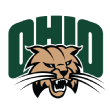
Jeff Boals, Ohio Bobcats: The Bobcats won just 14 games each of the past two seasons, and Boals has the team halfway there after six weeks. Boals, who left Stony Brook for Ohio last spring, led the program to road victories at St. Bonaventure and Iona in early November to build momentum. The Bobcats also have one of the most productive guards in the country in sophomore Jason Preston, who is averaging nearly 17 points, 6 rebounds and 9 assists.
